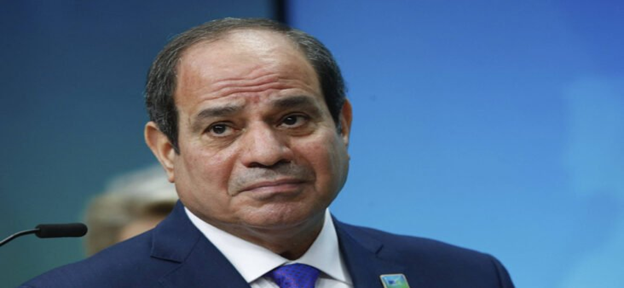
Egypt’s Abdel Fattah Al-Sisi has vowed to reduce the military’s undue influence over the country’s economy as part of a new $3 billion International Monetary Fund (IMF) bailout, reported the Financial Times, citing a recent IMF report.
The package of measures that will be introduced will address Cairo’s economic woes including a foreign currency crisis, a weakening pound and rising inflation.
The Finacial Times report stated that Egypt has committed to reducing the military’s role in the economy as part of its $3bn IMF bailout package, as the Arab state grapples with a foreign currency crisis, a weakening pound and rising inflation.
The IMF said in a statement on Tuesday that “critical” structural reforms to which Cairo had agreed included “levelling the playing field between the public and private sector” as part of a state-ownership policy endorsed by General Abdel Fattah al-Sisi.
The fund said the policy would cover all state-owned enterprises, including “military-owned companies”, in a rare acknowledgment by the IMF of how the army has expanded its footprint across Egypt’s economy since the former army chief seized power in a 2013 coup.
Under the policy, the government would define sectors that are “strategic” while gradually withdrawing the state from “non-strategic sectors”, including through asset sales.
State-owned entities will also be required to submit financial accounts to the finance ministry on a twice yearly basis and provide information on any “quasi-fiscal” activities in an effort to improve transparency. The ministry will ensure open access to the data, the fund said.
Economists and Egyptian businessmen have long complained that the military’s role in the economy crowded out the private sector and scared away foreign investors. The army, the country’s most powerful institution, is exempted from some taxes and its businesses are notoriously opaque.
Sisi identified the military as the main vehicle to help rebuild a broken economy after the turmoil, triggered by the 2011 revolution, that toppled veteran leader Hosni Mubarak. It has since been put in charge of hundreds of infrastructure projects and expanded its interests in sectors ranging from pasta and beverages to cement.
Sisi’s regime has previously pledged to reduce the military’s role in the economy and privatise army-owned companies, but little progress has been made. Businessmen hope the scale of the current crisis will now force the authorities to act.
The IMF forecasts that Egypt, which has been hit by the global repercussions of Russia’s invasion of Ukraine, faces a $17bn financing gap over the next four years.
“The authorities’ reform program is based on giving a bigger role to the private sector, which is very much needed. It’s very important that the state-ownership policy is endorsed at the highest level, including by the president,” said Ivanna Hollar, IMF mission chief for Egypt.
Cairo was forced to go to the IMF last year after foreign investors withdrew about $20bn from Egypt’s debt markets around the time of Russia’s invasion of Ukraine. The capital outflow triggered a foreign currency crisis and forced Cairo to turn to Gulf states for a multibillion-dollar bailout.
Egypt had been paying the world’s highest real interest rate to attract the portfolio inflows it used to finance its current account deficit.
The IMF loan — Egypt’s fourth from the fund since 2016 — was sealed in October after months of talks, with Cairo also agreeing to move to a flexible exchange rate regime. The Egyptian pound hit record lows this week with the authorities having allowed the currency to devalue in stages by 43 per cent against the dollar since March 2022.
Economists say devaluation is necessary to balance supply and demand in foreign exchange markets, after the authorities had for years propped up the currency. But the weak pound has added to inflationary pressures. Core inflation rose to 24.4 per cent in December.
This has put more pressure on tens of millions of Egyptians, with about 60 per cent of the 100mn population estimated to be living below or just above the poverty line.
Outlining the risks to the reform programme, the IMF said “fiscal consolidation in the context of rising living costs could face political and social pushback”.
“The durability of the shift to a flexible exchange rate remains to be proven and the [central bank] may face political and social pressure to reverse course,” the IMF said. “While reforms aimed at reducing the role of the state may face resistance from vested interests in the country.”
Egyptian pound plunges again
Egypt’s currency plunged again on Wednesday, hitting a new low against the US dollar at below 32 pounds.
The latest devaluation is driven by the need to comply with international lender’s demands in return for urgent bailout
The country forged ahead with the planned devaluation after winning the backing of the International Monetary Fund. As a result, the pound now is almost on par with the prices quoted on the country’s black market.
The currency drop of over 10 percent was the largest single fall since late October, as Egyptian authorities seek to move towards a floating currency regime.
The pound plunged 40 percent against the dollar in 2022 – one of the worst performances of an emerging market currency last year. It continues its losing streak in 2023.
The latest government efforts to devalue the currency are an attempt to stamp out a parallel exchange market that has emerged beyond the state’s control, amid a growing foreign exchange crisis in recent years.
The IMF on Tuesday gave details of a $3bn rescue package for Egypt, including details about the country’s move towards a flexible foreign exchange. It also greenlit interventions by the central bank, which it said would be “guided” by the need to smoothen market volatility.
As part of the agreement, Egypt has also agreed to loosen the military’s grip on the economy.
The Egyptian regime faces regular criticism over its failure to curb the military and state officials from scaring away investors and crowding out the public sector. The army, the country’s most powerful institution, is exempted from some taxes and its businesses are said to be notoriously opaque.



